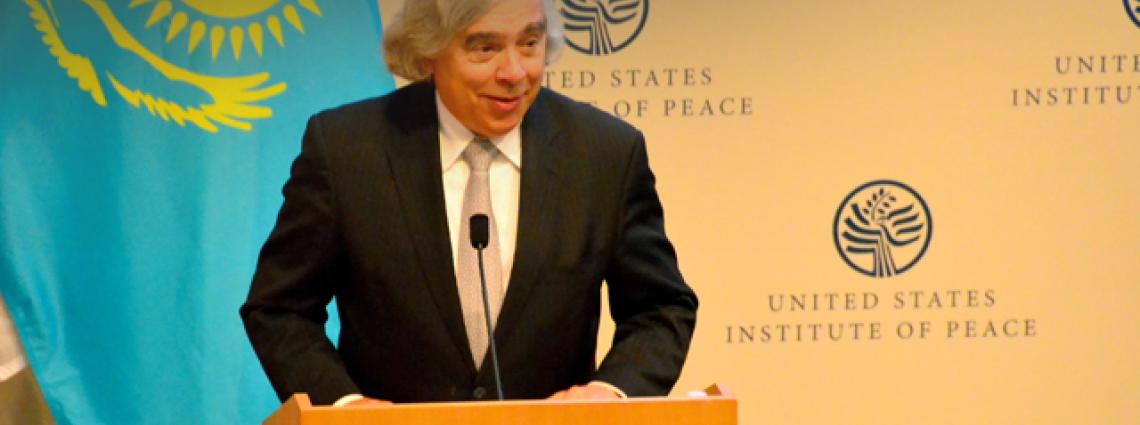Washington D.C.: Conference on "Nuclear Weapons Testing: History, Progress, Challenges"
Washington D.C., 15 September 2014
The head of the Preparatory Commission for the Comprehensive Nuclear-Test-Ban Treaty Organization (CTBTO), Lassina Zerbo, delivered a keynote address on 15 September at an event entitled “Nuclear Weapons Testing: History, Progress, Challenges” at the United States Institute of Peace in Washington, D.C.
In his address, Zerbo spoke of "treaty fatigue" and explained that "we cannot sustain having the Treaty not in force." He emphasized the importance for countries, especially those in the developing world, to understand what the United States is doing to advance its own ratification.
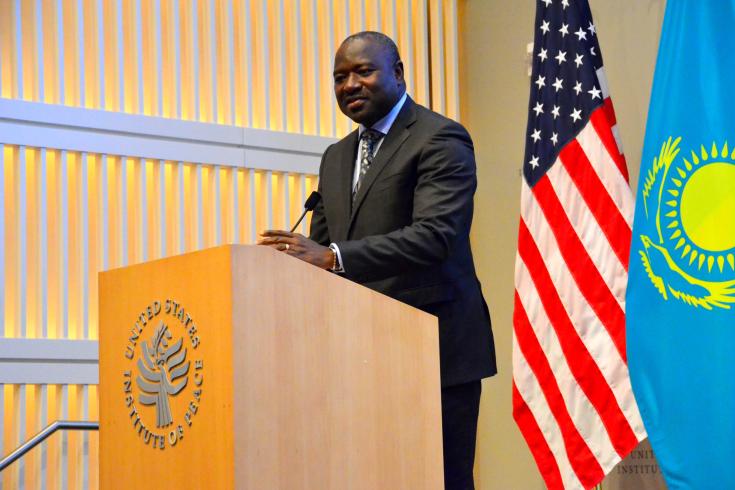
CTBTO Executive Secretary Lassina Zerbo. - Photo Credit: Jackie Barrientes / Arms Control Association
The United States has reengaged on the Comprehensive Nuclear-Test-Ban Treaty (CTBT) in a major way. This engagement has been instrumental in supporting the establishment of the Treaty’s verification system. The United States provides invaluable support for the build-up and maintenance of the verification regime as a whole, as well as with regard to the certification of the U.S. IMS stations.
Senior U.S. government officials make the case for CTBT ratification
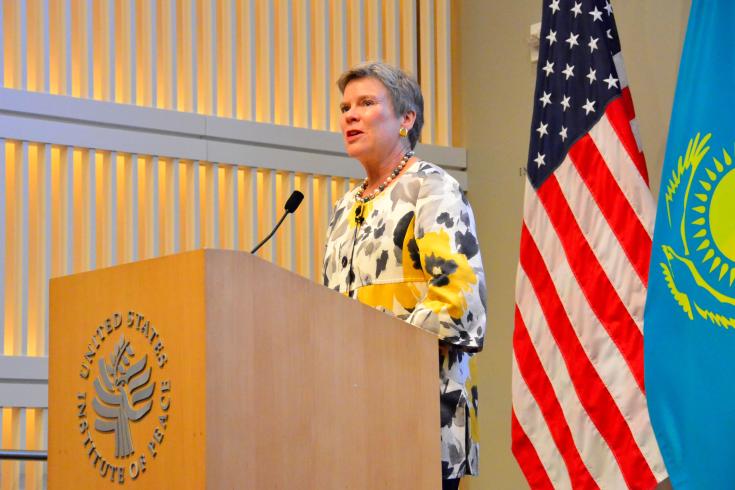
U.S. Under Secretary of State for Arms Control and International Security, Rose Gottemoeller, delivers a keynote address. - Photo Credit: Jackie Barrientes / Arms Control Association
The United States remains committed to ratification and entry into force of the Comprehensive Nuclear-Test-Ban Treaty, along with the monitoring and verification regime. And this Administration will continue making the case for U.S. CTBT ratification to build bipartisan support.
Gottemoeller said it was now in the national security interests of the United States "to close the door on testing for ever". She maintained that the plan towards ratification would require first educating the public and decision makers, leading to discussions and lastly to a debate on the issue in the Senate. Gottemoeller explained there was a need to reintroduce the CTBT to the U.S. public after many years and that the Administration would not pursue ratification without proper preparation.
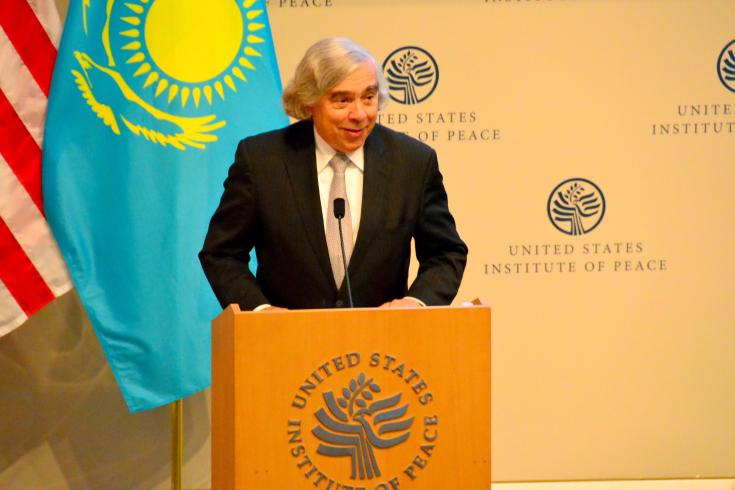
U.S. Secretary of Energy, Ernest Moniz. - Photo Credit: Jackie Barrientes / Arms Control Association
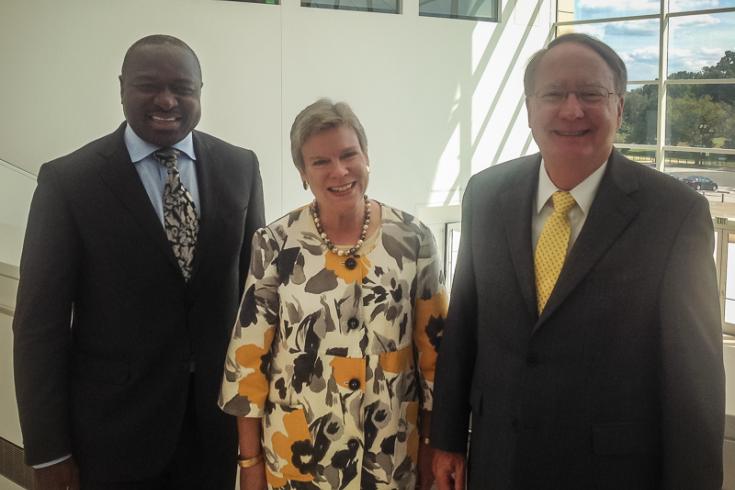
CTBTO Executive Secretary Lassina Zerbo with U.S. Under Secretary of State for Arms Control and International Security, Rose Gottemoeller, and U.S. Under Secretary for Nuclear Security and Administrator for the National Nuclear Security Administration, Frank Klotz.
25 Sep 2014
